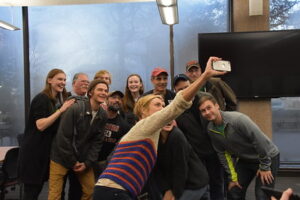
First-year students enrolled in ENVS125F/Community Gardening, taught by Rosemary Ostfeld ’02, assistant visiting professor of environmental studies, in spring 2021, became University of Connecticut Certified Master Gardeners this fall, thanks to a partnership by the College of the Environment, Allbritton Center for the Study of Public Life, and the UConn Extension Master Gardener Program.
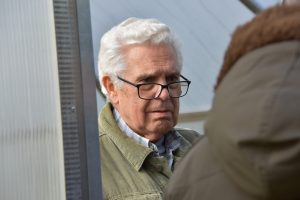
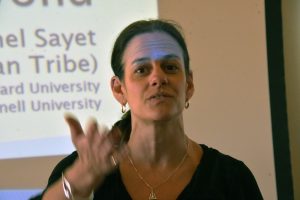
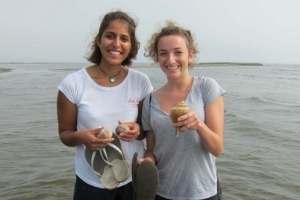 A conversation with Professor Michael Singer, Professor of Biology and Environmental Studies, about his Fall 2019 course BIOL 220/ENVS220: Conservation Biology. The course is a broad introduction to the interdisciplinary, science-based field of conservation biology. While the course includes aspects of economics, politics, ethics, and other fields, it focuses on the biological part of conservation. Much of this biology is ecology, which is Singer’s specialty. At left: BIOL220/ENVS220 students and visitor Dr. Paul Spitzer on a field trip earlier this semester.
A conversation with Professor Michael Singer, Professor of Biology and Environmental Studies, about his Fall 2019 course BIOL 220/ENVS220: Conservation Biology. The course is a broad introduction to the interdisciplinary, science-based field of conservation biology. While the course includes aspects of economics, politics, ethics, and other fields, it focuses on the biological part of conservation. Much of this biology is ecology, which is Singer’s specialty. At left: BIOL220/ENVS220 students and visitor Dr. Paul Spitzer on a field trip earlier this semester.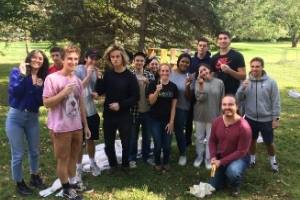
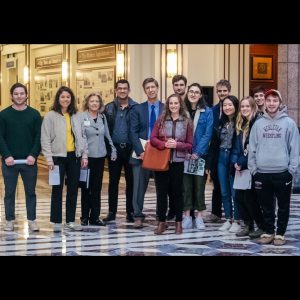 Visiting Assistant Professor of Environmental Studies (and Wes alum)
Visiting Assistant Professor of Environmental Studies (and Wes alum) 